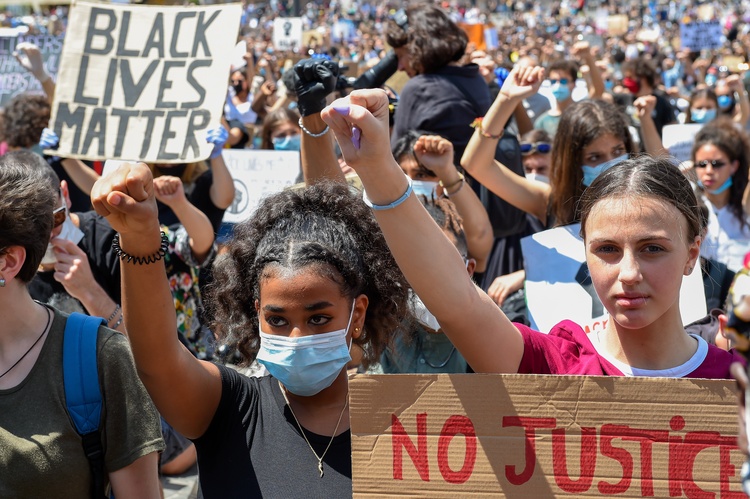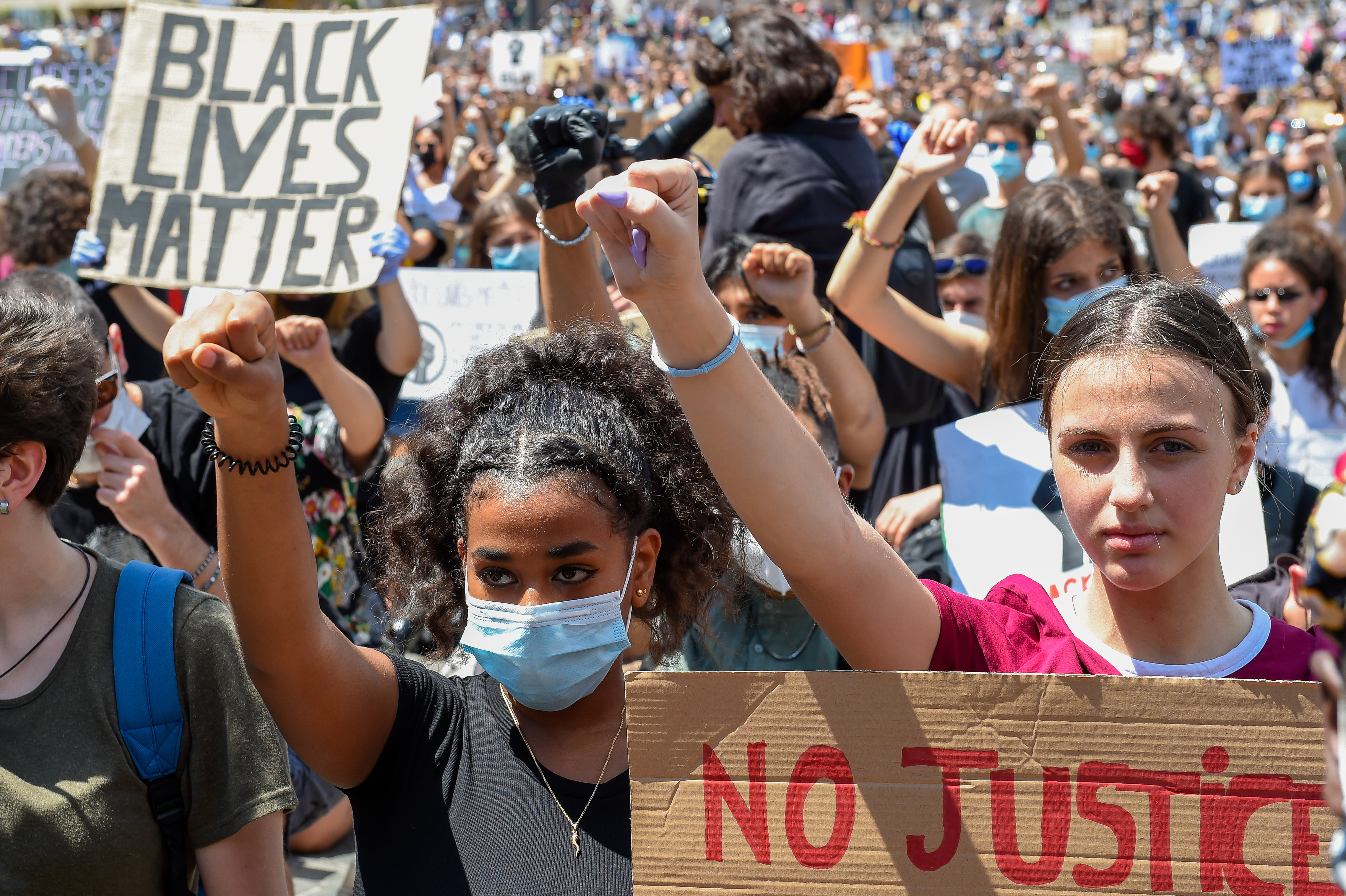Thousands of people joined sit-ins in Rome, Milan, Florence, Turin, Bologna, Naples, Genoa, Bari and other cities around Italy as part of the wave of global demonstrations sparked by the death of African-American man George Floyd in Minneapolis police custody.
Protesters knelt in silence for eight minutes and 46 seconds, the length of time that former police officer Derek Chauvin pushed his knee into Floyd’s neck as he lay face-down on the ground.
“We can’t breathe,” shouted the crowd in Rome’s Piazza del Popolo on Sunday.
As well as remembering institutionalised racism and police brutality in the US, demonstrators also called for Italy to address its own injustices.
In Florence on Saturday, American artist and activist Justin Randolph Thompson urged demonstrators to remember the 2018 killing of Idy Diene, a Senegalese man who was shot a few minutes away from where the protest took place outside the US consulate.
Seven years earlier, two Senegalese men, Samb Modou and Diop Mor, were shot dead by a far-right extremist in Piazza Dalmazia.
A third man, Moustapha Dieng, was left permanently disabled by the attack.
In Milan on Sunday, protesters marched from the Piazza Duca D’Aosta towards the street where, in 2008, 19-year-old Abdul William Guibre was beaten to death by a father and son who shouted racial slurs and claimed he had stolen from their bar.
One of those addressing the crowd in Milan said that in Italy, Black Lives Matter means not delaying legislative reform to make it easier to receive citizenship.
Foreigners born in Italy aren’t automatically eligible for citizenship until they reach 18 after continuously living in the country.
In recent years, efforts have failed to enact legislation to allow foreigners’ children born in Italy to become citizens while still minors if they’ve attended Italian schools.
Parents complain that their children, although identifying as Italian and speaking fluent Italian, are viewed as second-class citizens.












